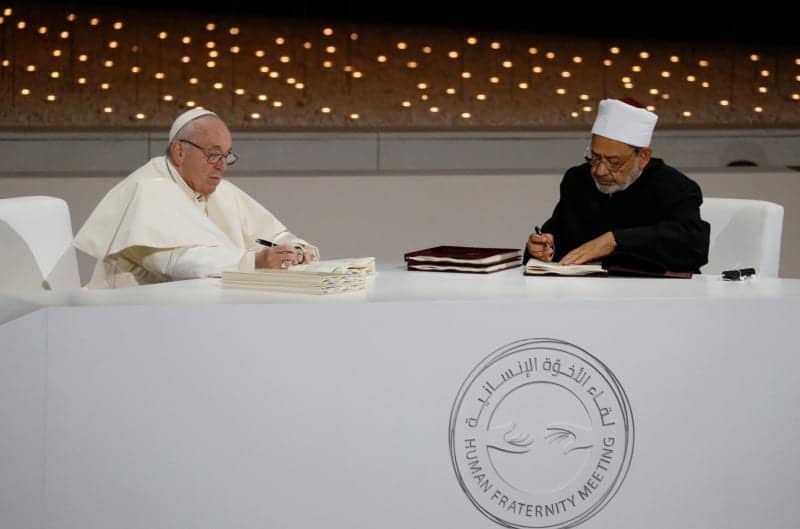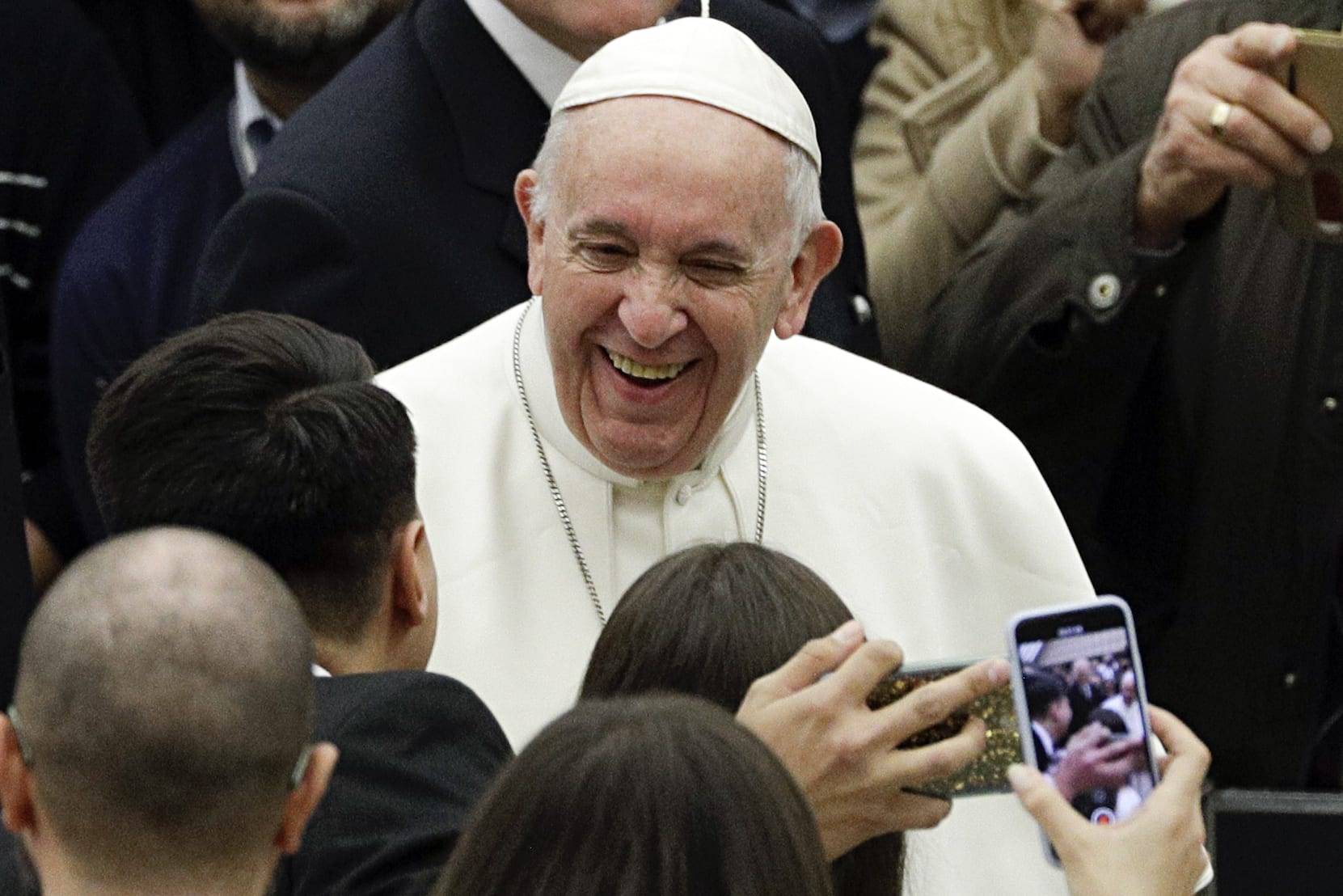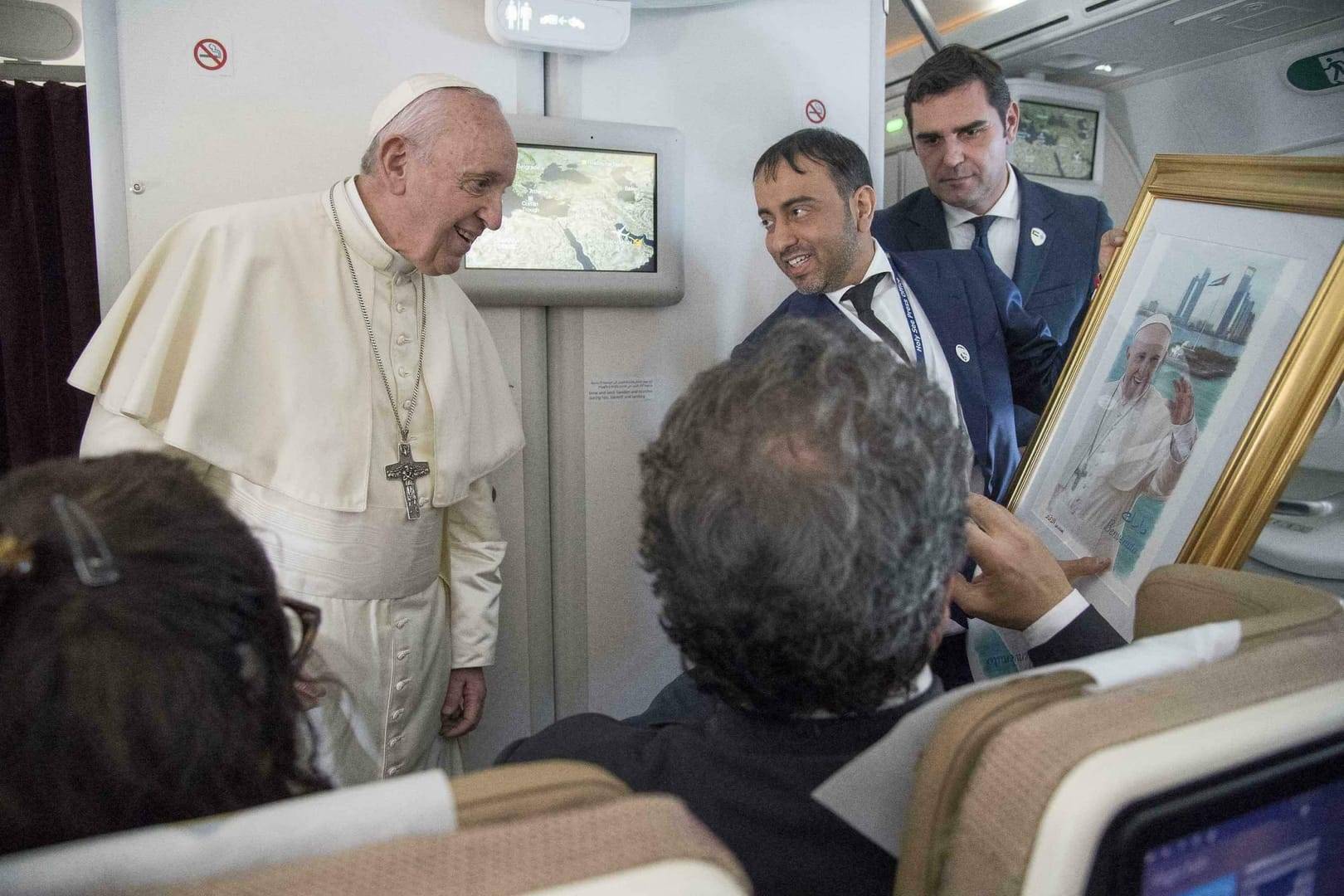ROME – After more than 2,000 years it’s hard to believe there are many “firsts” left for the Catholic Church, but the first-ever pope from the global south will notch yet another one on Sunday, when he becomes the first pope in history to set foot in the Gulf States with a Feb. 3-5 visit to United Arab Emirates.
While Pope Francis is harvesting seeds planted by his predecessors, including the pontificate of Benedict XVI when diplomatic ties between the Holy See and UAE were formalized, the visit comes at a key moment when many believe Christianity is at risk of disappearing from the Middle East.
With no native bishops and only a handful of native Catholics, UAE is nevertheless home to close to a million immigrant faithful for whom 60 priests hailing from India, the Philippines, Lebanon, Switzerland, Italy, Brazil, the USA, Sudan, Tanzania, Korea, Kenya, Germany and France say Mass in 8 churches.
Seeing the composition of the Catholic community and Francis’s well-known concern, it’s safe to bet that he’ll talk about migration at least once during the 40 hours he’ll be in UAE.
The first-ever papal visit to the Arabian Peninsula comes a year after his trip to Egypt and a month before his trip to Morocco, scheduled for March. All are key countries in the Muslim world, and in all three Christians benefit from relative freedom, even if such basic rights as liberty to convert or liberty of worship in public are far from a reality.
According to Pew Research, some 10 percent of the population in the UAE is Catholic, mostly foreigners from the Philippines and India working in the oil industry, construction and cleaning homes. Typically, they have work visas lasting either one or three years.
UAE is an overwhelmingly Muslim nation, but the government has a policy of tolerance toward other religions. That’s been the case since 1960, after oil was first found, when foreign businessmen, oil company executives, traveling salesmen and many more began surging into Abu Dhabi. The first Catholic church was built in the country in 1965, six years before the country was actually founded.
The local church falls under the Apostolic Vicariate of Southern Arabia, including United Arab Emirates, Oman and Yemen, and is headed by Swiss Bishop Paul Hinder. Catholics are free to worship without fear of discrimination or persecution, as long as they do so privately. Due to the many foreign workers, most churches offer Masses in Arabic, English, French and Tagalog, in addition to native languages.
In the words of Hinder to the Emirates News Agency, the papal visit will be a “historic moment.”
“I am happy because it shows the openness of this country and is a unique opportunity to show the world what is happening here,” he said.
Francis on Tuesday will say the first-ever Mass held in a public space, the Zayed Sports City. According to the official website of the Vicariate, more than 100,000 are expected to attend and some 10,000 were waiting in line when the tickets were distributed earlier this week.
Religious freedom, “moderate”
According to the papal foundation Aid to the Church in Need (ACN), while Christians could be wiped out from the Middle East in the next decade, the situation in UAE presents a “sharp contrast, with the faith flourishing here.”
Every Friday, the Mushrif neighborhood in the UAE sees crowds of Catholics going to attend Mass at St. Joseph’s Cathedral and St. Paul’s Church, which was opened in 2015 by Cardinal Pietro Parolin, the Vatican’s Secretary of State. Although Christians are a small minority, according to ACN they receive wide support from the Emirates’ rulers who often donate land and waive water and electric bills for the churches.
But not everything that glitters is gold. According to Daniel Philpott of the University of Notre Dame, religious freedom in UAE is only moderate.
“Other countries are much more repressive, such as Iran or Saudi Arabia, but there are also Muslim majority countries concentrated in Western Africa that have religious freedom,” he told Crux.
Philpott believes Francis’s trip to the region is a “bold and courageous move,” reflecting the Catholic tradition that “we go out to the world.”
Any papal trip to Muslim countries, Philpott argued, is “historic” and continues the dialogue and friendship with other faiths launched at the Second Vatican Council, “and this may be what we call the next step forward.”
Francis will be meeting with the Council of Muslim Elders, based in Abu Dhabi and dedicated to dialogue, peace and friendship. UAE, Philpott said, embodies “a part of the Muslim world very geared up and accustomed to interreligious dialogue.”
This doesn’t make the trip any less historic, but it does mean the pope will have more leeway to talk about religious freedom, which Philpott said is “a very important principle” for the Church’s tradition.
“It’s the principle that people and communities are to be free and uncoerced in the practice of their religion and the practice of religious truths as they see fit, without suffering any discrimination or second-class citizenship,” he said.
Philpott noted that as foreigners, Christians and members of other religions are never really citizens in UAE.
“UAE is a headquarters for interreligious dialogue,” Philpott said. “But the real question to ask is whether this will be cheap dialogue or meaningful, authentic dialogue.”
“If I’m a Christian in Abu Dhabi, I can go to church,” he said. “But there are restrictions: a Christian cannot be public about their faith, they cannot communicate their faith through the media or have a procession down the street. Anything that might remotely smack of evangelization, and which some brush out as proselytism, is out.”
Such tight government control doesn’t apply only to Christians or Hindus, Philpott highlighted: The government also oversees Islam, so even it isn’t as free as the principle of religious freedom would require.
Francis’s visit has been framed by the Vatican as an interreligious one, as he’ll be joined by the Grand Imam of Al-Azhar in Egypt, whom the pontiff described as a “dear brother” in a video message sent to UAE ahead of the trip. The two will participate in a meeting under the theme of “Human Brotherhood.”
The interreligious encounter, Francis said, will affirm that “faith in God unites and does not divide,” bringing people closer despite the differences, “away from hostility and aversion.”
In the video, he also describes the country as a “land that tries to be a model of coexistence, of human brotherhood and of encounter between different civilizations and cultures, where many find a safe place to work and live freely, respecting diversity.”
The “will he-won’t he”
Whenever Francis heads to a new destination, there’s often hype among locals and the media over what he might choose to do or say. For instance, when he went to Myanmar last year, it was all about the word “Rohingya,” referring to a persecuted Muslim minority that the government refuses to acknowledge both that it exists and that it’s being repressed by local authorities. He spoke about them, but didn’t use the “r” word until he reached Bangladesh.
When he went to Chile, it was about clerical sexual abuse, and if he was going to meet with victims-survivors. He met with victims, and apologized in his first speech.
Seeing the UAE’s role in the region and Francis’s denunciation of a “third world war [being fought] piecemeal,” the “will he-won’t he” of this trip likely will focus on Yemen, as Emirates is part of the coalition led by Saudi Arabia bombing this Middle Eastern country where millions face starvation.
Today, there’s a cease-fire agreed upon last December, but the roots of the devastating civil war backed by foreign intervention have not been addressed. Hence, as the United Nations has put it, Yemen is the world’s worst man-made humanitarian disaster.
More than 20 million Yemenis – two thirds of the population – lack food security. Ten million are severely food insecure, more than twice the number of four years ago. More than half of Yemen’s districts have slipped into “emergency” conditions, which is one step below famine in the international classification.
Another part of the trip’s drama therefore, is whether Francis, the champion of those in the outskirts, will spend some of his political capital to shine a light on the crisis.
Another issue that might loom as a “will he or won’t he” is UAE’s decision to buy 15 tons of gold from Nicolas Maduro, the president of Venezuela, who’s been ostracized by many in the international community with the exception of Russia, China and Emirates.
Yet another crisis began to unravel in the country while Pope Francis was in Panama last week and Francis decided not to take sides, saying instead he was concerned over the “bloodshed” in Venezuela and that a peaceful solution respectful of human rights was needed.
The selling of Venezuela’s last reserves to continue funding the government of Maduro, who just announced a 50,000-people strong “popular army,” might not be what the pontiff had in mind.
















